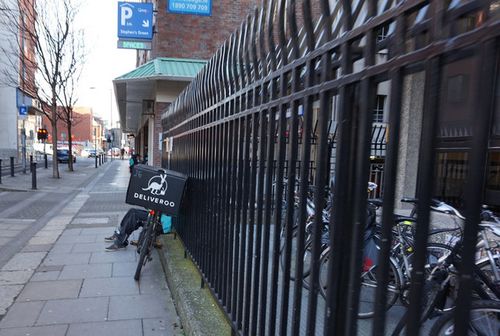The Gig economy features online platforms that match supply and demand of work or tasks in a range of areas on a short and payment by task basis. Through digital platforms usually smartphone apps organisations can offer a variety of services exclusively through digital media. Organisations that have grown steadily in recent years include Uber (taxi service), Deliveroo (food delivery), Taskrabbit (errand service), and Airbnb (accommodation) (ILO, 2016). Buymie (grocery delivery) and Fleet (Car rental) are two Irish start-ups that have become involved. Of increasing concern are the workers who do not meet the classification of employee and become unintentional self-employed Gig workers.A European Commission paper entitled The Future of Work, states “The world of work has always evolved however the pace of change has accelerated significantly, largely due to digital technologies” and also “found that in many cases people enter the Gig economy by necessity rather than choice”.
Modern work has been altered by a variety of working patterns and employment contracts to match the desire for flexibility from the worker and the organisation. The Organisations need for competitiveness no longer fits with the notion of full employment. However the fairness of the employment arrangements in the gig economy leads others to question its sustainability. An ESRI study “Measuring Contingent Employment in Ireland” has found around 200,000 Irish workers are in temporary or other non-permanent employment arrangements. These temporary and non-permanent arrangements include Zero hour contracts, contract work and If and when contracts, (ESRI 2018). Ms. Oonagh Buckley, Director General of the Workplace Relations Commission commented that “Employment relationships are becoming more complex and it is important that legislators and policy makers understand those trends when considering whether and what changes should be made to employment law”.
Irish employment law contains a number of pieces of legislation to protect non-full-time workers from discrimination. The Protection of Employees (Part-Time Work) Act 2001 specifies that part-time workers cannot be treated differently to full-time workers in respect of any condition of employment. The Protection of Employees (Fixed-Term Work) Act 2003 prohibits discrimination against fixed-term workers. This Act also specifies that if an employer hires an employee on two continuous fixed-term contracts, it cannot be for more than four consecutive years. Finally, the Protection of Employees (Temporary Agency Work) Act 2012 states that temporary agency workers have the right to equal treatment in basic working and employment conditions. However the so called Gig worker cannot rely on the protections offered by current Irish employment law.
Classifying workers in the Gig economy as independent contractors rather than employees, is an increasingly common trend in the sector. The legal definition of an employee in employment law comes from a time before the internet existed and opened the possibility of so many new forms of work and types of employment. The technology companies design online platforms which connect a client (who requires a service) with a worker who will perform the task. The technology company claims to be a platform which allows the client and worker to find each other thereby allowing the worker to be classified as self-employed. In the case of Gig workers the company has no responsibility to provide employment benefits or a contract of employment and the associated legal responsibilities. These “self-employed” workers however who register with the platform and accept tasks do not have the ability to develop their business or acquire their own customers, which would be seen as a crucial element of self-employment. Raising the question of how they can be deemed self-employed as in many instances the organisation may insist they only work through their platform and give instruction as to how the task is to be completed.
It would seem therefore that there is a need to have a new classification of worker addressed under employment law allowing a special definition of worker who perform tasks through online platforms. According to a study ‘The Social Protection of workers in the Platform Economy’ it is desirable “to offer greater social protection to platform workers”. The report had two key findings firstly, that the absence of a clear definition of the platform economy is leading to differing conclusions as to its growth and size, causing difficulty for policy makers to address the issues. Secondly the ability to access suitable data to make an assessment on the size and growth of the platform economy.
This research found evidence of concerns over the treatment of platform workers by the platforms organisations, including issues with fair and timely payment of wages, sudden and unexpected terminations of work, extremely long hours, lack of transparency and lack of accessible channels to challenge perceived unfair treatment of workers by platforms. (European Parliament 2017).
As the Gig economy continues to grow there is still a lot of work to be done to address the emerging forms of employment and allow Employment Law to keep pace. Gig Employment is not a major feature of Irish employment at present, however it is expanding and, when combined with the pace of technological development, it is important that legislators make contingency plans to address future trends and keep ahead of the Issues. In looking to the future and embracing the changing world of work, we must ensure that future proofing of employment legislation will benefit all stakeholders of the digital era.
